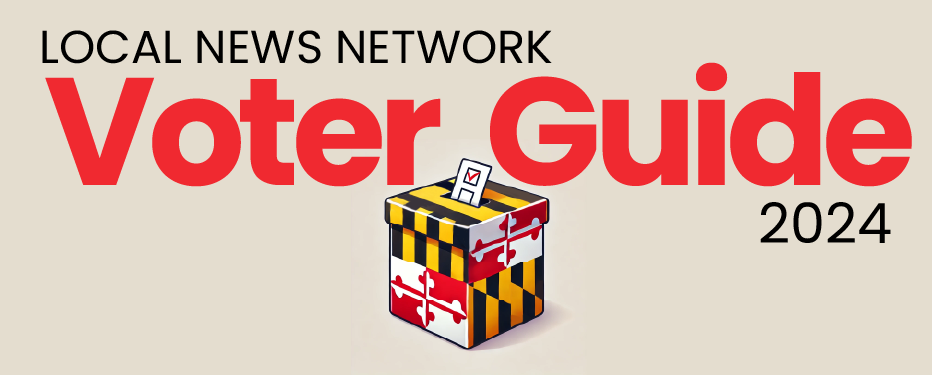Sarah J. McDermott
Running for school board in Anne Arundel County District 4
How old will you be on Election Day (Nov. 5)?
35
Are you currently employed? If so, where, and what is your job title?
I am employed with the State of Maryland at the Maryland Department of Labor. I am the assistant commissioner of occupational and professional licensing.
What is the highest level of education that you completed, and where did you get that degree?
I received my bachelor's degree in government and politics from the University of Maryland, College Park.
Why are you running for the school board?
I am running for the Board of Education because now is the time to advocate for and implement changes that will have the most positive impacts for our educators, students and their families. With the promise of Blueprint programming underway, our schools have everything to gain — but only if these resources are distributed in ways that increase equity and the odds of success for our students.
What makes you a good candidate for the board?
As a mother to two children who attend schools within the Arundel cluster, I am deeply committed to the academic success and personal growth of our students. As a public servant with experience in program implementation, budget management, legislative coordination, personnel management and constituent services, I will bring a unique perspective to the board that emphasizes oversight and accountability.
What is the most important issue facing your school board and what would you do about it if elected?
The recruiting and retention of educators and service providers is not only the most important issue facing our school board, it is a national crisis affecting school systems throughout the United States. Our veteran educators are exhausted and have been overextending themselves for too long, but many of our newest teachers are electing to leave the classroom and move on to careers that pay more and provide a better life-work balance. If elected, I will continue to ensure constant evaluations of Anne Arundel County’s competitiveness with surrounding counties and push for higher salaries for our educators and staff.
Please name a public leader you admire and explain why.
I greatly admire Joseline Peña-Melnyk, delegate for District 21, which incorporates Anne Arundel and Prince George’s counties. Although she displays tremendous tenacity and grit when fighting for strong policies that benefit women, immigrants and other marginalized communities, she also deeply believes in mentorship and creating opportunities to connect with the next generation of community leaders.
The Blueprint for Maryland’s Future, passed by the General Assembly in 2021, is a 10-year plan that includes increased education funding to support early childhood education, increased teacher starting pay, college/career-readiness standards for high school graduates, and expanded services to multilingual and impoverished families, among other goals. Please tell us your views on the Blueprint and how it will affect your school district.
The Blueprint for Maryland’s Future has the potential to be the investment that public schools need in our state if it is implemented properly. All of the pillars presented are imperative to the success of our school system and must be rated a top priority for Anne Arundel County Public Schools. With the measured rollout of Blueprint funding, the amount of educational and career readiness resources available for students will increase, early childhood education will become more accessible, and the school system will continue to focus on recruiting and retaining diverse, high quality educators. However, with increased resources comes the increased need for oversight, accountability and feedback. As a board member, I will advocate for the proper implementation and the resources necessary to make the Blueprint work for Anne Arundel County Public Schools.
Some school districts nationwide are placing new limits on the use of cellphones in middle and high schools. What do you think should be the policy on student use of cellphones in your district, and why do you support that policy?
The goal of the policy should be to reduce the amount of student distraction teachers are dealing with during instructional periods. Dr. Mark Bedell has commented that “we only have our students in school for about 19 percent of each week, and we need to maximize every minute of instruction that we can.” I agree with him and believe not only will our students be focused more on what happens in the classroom if they are not allowed to have their phones out, but that their mental health will be improved by significantly increasing the amount of human interaction between them and the other students. I would like to see a planned layout of progressive steps where students are given a warning and then moved to confiscation, with a parent or guardian having to pick up the phone from the school. Buy-in from parents and caretakers is critical for any policy to be successful.
Are you satisfied with your school district's efforts to ensure the safety of its students? What, if anything, should be done to improve school safety in your district?
I will continue to emphasize building supportive school communities by allocating resources to enable schools to sponsor more events and clubs that give students and teachers the opportunity to be involved and build a deeper connection with their schools and each other. Students that have positive relationships with others and staff through in-class and extracurricular activities feel a sense of ownership, pride, and connection that make them one of our first lines of defense in curbing bullying and preventing violence in the school setting.
Additionally, I will advocate for an increase in mental health and counseling resources for students and staff. Increasing the number of counselors and psychologists per school is critical to assisting students with emotional learning while navigating challenging situations.
To enhance emergency response protocols, I would encourage a deeper partnership between law enforcement and schools that extends to on-site training of emergency response procedures, even to the extent of simulating responses during professional development training days so all staff are trained and prepared to handle emergency situations.
Do you think there are circumstances when books should be removed from school libraries? If so, what kind of books should be removed, and who should make those decisions?
I will vote against book bans and the editing of curriculum based on personal beliefs. No topic should be banned from curriculum or libraries, provided that they are age appropriate, and I really trust our librarians and educators to determine that for their students. When we don’t provide opportunities for our children to learn about people who are different from them, they become adults who find it challenging to accept diversity in others.
Some school districts enact policies allowing transgender and gender nonconforming students to use their preferred pronouns while at the same time not informing those students' parents about that decision. What is your opinion of such policies?
Preferred names and pronouns should be respected by fellow students, educators and administrators. Also, it is not a school’s role to notify parents of a child's decision to use a name or gender that is different from what is on their birth certificate.


